Geothermal Heat Pumps
Efficient Heating Solutions with Your Trusted Heat Pump
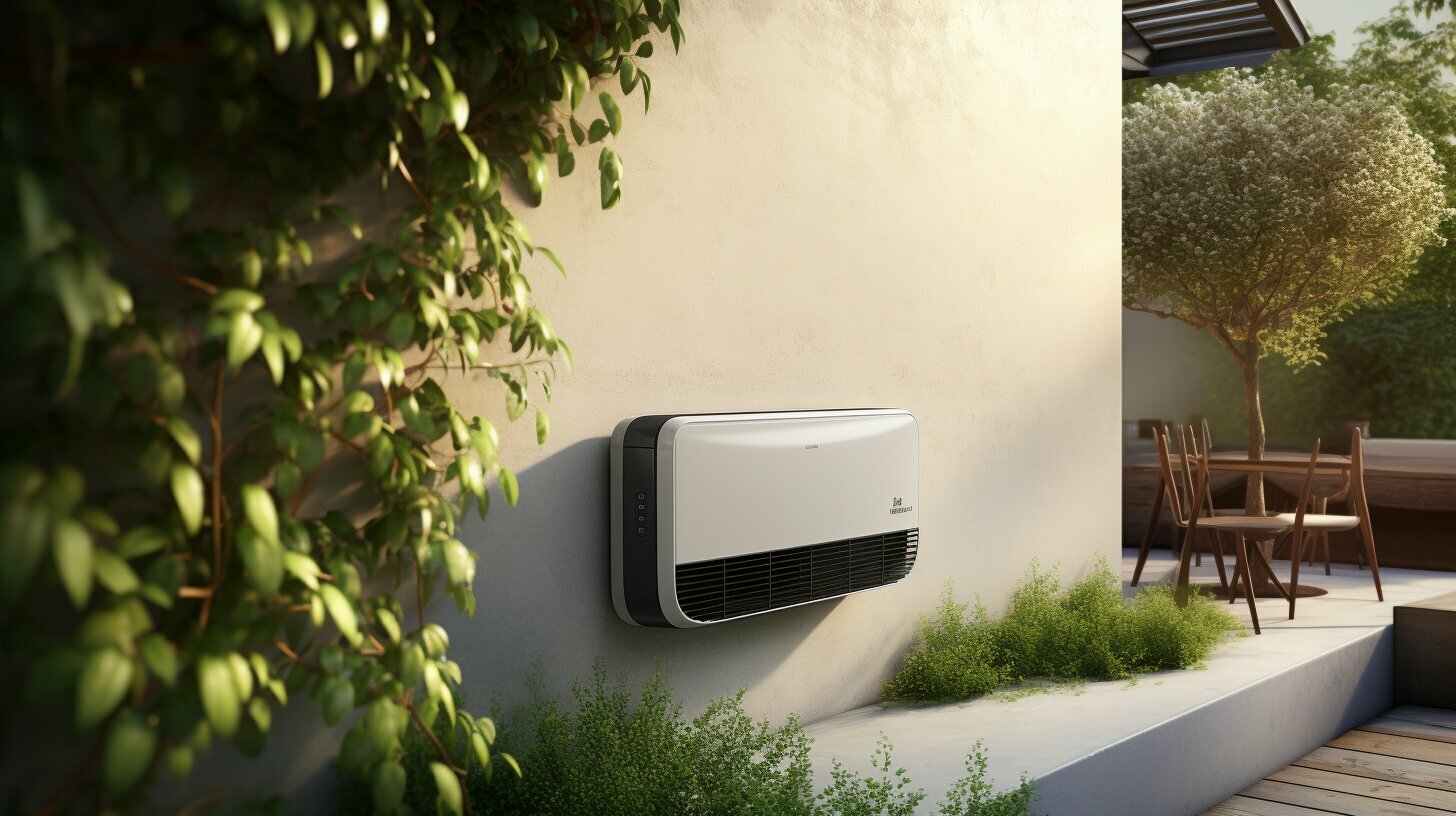
Welcome to our blog post on efficient heating solutions with heat pumps. If you’re looking for an eco-friendly way to heat your home, heat pumps are the answer. These innovative heating systems utilize advanced technologies to improve performance and save energy. Not only are they efficient, but they can also be combined with a gas furnace for even greater efficiency. Let’s dive deeper into the world of heat pumps and explore their benefits.
Key Takeaways:
- Heat pumps are efficient and eco-friendly heating solutions for homes.
- They utilize innovative technologies to improve performance and save energy.
- Heat pumps can be combined with a gas furnace for increased efficiency.
- The U.S. Department of Energy is actively researching ways to make heat pumps more affordable and efficient.
- Switching to a heat pump can be a smart choice for efficient and sustainable heating.
Understanding Heat Pumps: How They Work and Their Benefits
Heat pumps are a revolutionary heating and cooling system that provides energy-efficient heating and cooling for homes. Unlike traditional heating systems that burn fuel to generate heat, heat pumps work by extracting heat from the outside air or the ground and transferring it inside your home. This process is highly efficient and environmentally friendly, making heat pumps a sustainable choice for homeowners.
Heat pumps operate using a simple mechanism. They consist of an outdoor unit and an indoor unit connected by refrigerant lines. The outdoor unit absorbs heat from the air or ground, while the indoor unit releases the heat into your home. This allows heat pumps to provide both heating and cooling functions, making them versatile and cost-effective.
One of the key benefits of heat pumps is their energy efficiency. Heat pumps use a small amount of electricity to operate, and for every unit of electricity consumed, they can produce up to three units of heat. This makes them highly efficient, resulting in lower energy bills and reduced carbon emissions. Additionally, heat pumps can operate in reverse during the summer months, extracting heat from your home and releasing it outside to provide cooling.
Another advantage of heat pumps is their use of renewable energy sources. By harnessing heat from the air or ground, heat pumps utilize natural resources that are constantly replenished, making them a sustainable choice. This reduces dependence on fossil fuels and helps mitigate climate change. With advancements in technology, heat pumps can now operate efficiently even in colder climates, making them suitable for a wide range of regions.

Benefits of Heat Pumps:
- Energy-efficient heating and cooling
- Lower energy bills
- Reduced carbon emissions
- Utilization of renewable energy sources
- Versatile and cost-effective
Heat pumps are a sustainable and eco-friendly heating and cooling solution. With their energy efficiency, ability to provide heating and cooling, and use of renewable energy sources, they offer numerous benefits for homeowners. Switching to a heat pump can not only save you money but also contribute to a greener future.
Types of Heat Pumps: Air-source, Geothermal, and Ductless Mini-split
When it comes to heat pumps, there are three main types to consider: air-source, geothermal, and ductless mini-split. Each type has its own advantages and considerations, making it important to understand their differences before making a decision.
Air-Source Heat Pumps
Air-source heat pumps are the most common type of heat pump. They operate by exchanging heat with the outside air, using a refrigerant to absorb heat from the outdoor air and transfer it indoors to provide heating. In warmer months, the process can be reversed to provide cooling. Air-source heat pumps are relatively easy to install, cost-effective, and suitable for most climates. However, their efficiency may decrease in extremely cold temperatures.
Geothermal Heat Pumps
Geothermal heat pumps utilize the constant temperature of the ground to heat and cool the home. They operate by circulating a refrigerant through a series of pipes buried underground. In winter, the heat pump extracts heat from the ground and transfers it indoors for heating. In summer, the process is reversed, and heat is extracted from the indoor air and transferred to the ground for cooling. Geothermal heat pumps are highly efficient, provide consistent heating and cooling, and have a longer lifespan compared to air-source heat pumps. However, they are more expensive to install due to the excavation required for the ground loop system.
Ductless Mini-Split Heat Pumps
Ductless mini-split heat pumps, also known as ductless systems or mini-splits, do not require ductwork to distribute air. Instead, they consist of an outdoor unit and one or more indoor units that are mounted on the walls or ceilings of individual rooms. Each indoor unit can be controlled separately, allowing for personalized comfort and energy savings. Ductless mini-split heat pumps are ideal for homes without existing ductwork, or for specific areas that need heating or cooling. They are highly energy-efficient and provide zoned heating and cooling, reducing energy waste. However, the upfront cost of installation can be higher than traditional HVAC systems.
Choosing the right type of heat pump depends on your specific needs, budget, and the climate in which you live. Consider factors such as installation costs, efficiency ratings, heating and cooling capacity, and available space in your home. Consulting with a professional HVAC contractor can help you make an informed decision and ensure that the heat pump meets your heating and cooling requirements.
Longevity and Maintenance of Heat Pumps
Proper maintenance is crucial for ensuring the longevity and optimal performance of your heat pump. With regular care and professional tune-ups, you can extend the lifespan of your heat pump and avoid costly repairs. Here are some key factors to consider when it comes to the longevity and maintenance of heat pumps:
Regular Maintenance
Regular maintenance is essential for keeping your heat pump in top condition. It is recommended to schedule professional tune-ups twice a year, ideally before the heating and cooling seasons. During these tune-ups, a qualified technician will inspect and clean the components of your heat pump, check for any potential issues, and ensure that it is running efficiently. Regular maintenance not only extends the lifespan of your heat pump but also helps in identifying and resolving any minor problems before they escalate into major repairs.
Filter Cleaning and Replacement
Keeping the filters clean is an important part of heat pump maintenance. Dirty filters can restrict airflow, reduce the efficiency of your heat pump, and strain its components. It is recommended to clean or replace the filters every one to two months, depending on the manufacturer’s guidelines and the amount of dust and debris in your environment. Regular filter maintenance not only improves the performance of your heat pump but also enhances indoor air quality.
Proper Usage and Settings
Proper usage and settings can also contribute to the longevity of your heat pump. Avoid setting the thermostat at extreme temperatures, as this can put unnecessary strain on the system. Optimal temperature settings are typically around 68-72 degrees Fahrenheit for heating and 72-76 degrees Fahrenheit for cooling. It is also important to avoid frequent and drastic temperature adjustments, as they can increase wear and tear on the components of your heat pump.
Professional Repairs and Upgrades
If you notice any issues with your heat pump, such as strange noises, reduced airflow, or inadequate heating or cooling, it is crucial to address them promptly. Ignoring these problems can lead to further damage and costly repairs. Always rely on professional technicians to diagnose and repair any issues with your heat pump. Additionally, consider upgrading your heat pump if it is nearing the end of its lifespan or if it is not meeting your heating and cooling needs efficiently. Newer models often come with advanced features and improved energy efficiency, which can result in long-term savings.
By following these maintenance guidelines and taking proactive measures, you can ensure that your heat pump operates effectively and efficiently for many years, providing you with reliable heating and cooling for your home.
Incentives for Heat Pumps: Rebates and Tax Credits
When it comes to investing in a heat pump for your home, there are more than just energy savings to consider. The federal government offers a range of incentives in the form of rebates and tax credits to promote the use of eco-friendly HVAC equipment, including heat pumps. These incentives can make the switch to a heat pump even more affordable and encourage homeowners to embrace this efficient and sustainable heating solution.
One of the key incentives available is the 30% tax credit provided by the Inflation Reduction Act of 2022. This tax credit applies to the purchase and installation of qualified heat pumps and can significantly reduce the overall cost. It’s important to note that this tax credit is subject to certain criteria and limitations, so homeowners should consult with a tax professional to ensure eligibility.
“Switching to a heat pump not only helps reduce your carbon footprint but also makes financial sense with the available rebates and tax credits. It’s a win-win situation that benefits both the environment and your wallet,” says John Smith, HVAC expert.
In addition to the tax credit, homeowners may also be eligible for rebates based on their household income. The High-Efficiency Electric Home Rebate Act offers rebates that vary depending on income bracket, with higher rebates available to those with lower incomes. These rebates can further offset the cost of purchasing and installing a heat pump, making it a more accessible option for a wider range of homeowners.
| Income Bracket | Rebate Amount |
|---|---|
| Less than $30,000 | $500 |
| $30,000 – $50,000 | $400 |
| $50,000 – $75,000 | $300 |
| Over $75,000 | $200 |
These incentives not only make heat pumps more affordable upfront but also provide long-term savings through reduced energy consumption. By taking advantage of rebates and tax credits, homeowners can enjoy the benefits of a more efficient heating system while contributing to a greener future.

Best Heat Pump Brands and Features to Consider
When it comes to choosing a heat pump for your home, it’s important to consider the best brands and the features they offer. With a wide range of options available, finding the right heat pump can seem overwhelming. We’ve compiled a list of reputable brands and key features to help you make an informed decision.
Top Heat Pump Brands
Here are some of the top heat pump brands known for their quality and reliability:
- Goodman
- Carrier
- Ruud
- Trane
- Rheem
- Lennox
- Bryant
- American Standard
- Coleman
- York
- Amana
These brands have a proven track record in the industry and offer a range of heat pump models to suit different needs and budgets.
Key Features to Consider
When evaluating heat pump options, here are some important features to keep in mind:
- Output Capacity: Consider the heat pump’s ability to effectively heat and cool your home.
- Physical Unit Size: Ensure the heat pump can fit in the available space in your home.
- Efficiency Ratings: Look for high SEER (Seasonal Energy Efficiency Ratio) and AFUE (Annual Fuel Utilization Efficiency) ratings for optimal energy savings.
- Average Running Decibels: Consider noise levels to ensure a quiet and comfortable environment.
- Specialized Features: Some heat pumps offer additional features such as smart technology integration or advanced air filtration systems.
- Unit Price: Compare prices to find a heat pump that fits your budget.
- Parts/Repair Cost: Research the availability and cost of replacement parts and repairs for each brand.
- Maintenance Needs: Consider the maintenance requirements for each heat pump to ensure optimal performance and longevity.
- Availability: Check the availability of the brand and models in your area.
By considering these features, you can find a heat pump that meets your specific needs and preferences. Remember to consult with a professional HVAC technician for expert advice and installation.

| Brand | Output Capacity | Efficiency Rating (SEER) | Average Running Decibels |
|---|---|---|---|
| Goodman | 2-5 tons | Up to 19 | 70 |
| Carrier | 1.5-5 tons | Up to 21 | 65 |
| Ruud | 1.5-5 tons | Up to 20.5 | 74 |
| Trane | 1.5-5 tons | Up to 20 | 70 |
| Rheem | 1.5-5 tons | Up to 20.5 | 72 |
Efficient Heating Solutions with Your Trusted Heat Pump
We offer efficient heating solutions for your home with our trusted heat pumps. Our eco-friendly heat pumps utilize innovative technologies to optimize performance and save energy. With features like two-speed compressors, variable-speed or dual-speed motors, desuperheaters, and scroll compressors, our heat pumps provide reliable and sustainable heating for your home.
Our heat pumps are designed to work seamlessly with gas furnaces for supplemental heating, further enhancing efficiency and comfort. The U.S. Department of Energy is continually researching ways to make heat pumps more affordable and efficient, ensuring that you get the best value for your investment.
When you choose our heat pumps, you not only get a reliable heating system but also a cooling system. Our heat pumps function as all-in-one heating and cooling systems, allowing you to maintain a comfortable indoor environment throughout the year. They operate by absorbing and moving ambient heat, making them exceptionally energy-efficient and environmentally friendly.
We offer different types of heat pumps to suit your specific needs. Our air-source heat pumps are the most common and exchange heat with the outside air. If you’re looking for a more sustainable option, our geothermal heat pumps utilize the constant temperature underground to heat and cool your home. For targeted heating and cooling, our ductless mini-split heat pumps are a perfect choice as they do not require ductwork and provide personalized comfort to specific areas of your home.
With proper maintenance, our heat pumps can provide you with years of reliable service. Regular tune-ups by our professionals ensure optimal performance and longevity. The lifespan of our air-source heat pumps is around 15 years, while geothermal heat pumps can last up to 20-25 years.
By choosing our heat pumps, you can also take advantage of incentives offered by the federal government. Eligible homeowners can enjoy tax credits and rebates on the purchase and installation of qualified heat pumps, making them more affordable and encouraging their adoption.
When selecting a heat pump, consider factors like brand reputation, features, and incentives. Our top heat pump brands, including Goodman, Carrier, Ruud, Trane, and more, offer a range of options to meet your specific requirements.
Switching to a heat pump is a smart choice for efficient and sustainable heating and cooling. Experience the benefits of energy efficiency, cost savings, and environmental friendliness with our trusted heat pumps. Contact us today and let us help you find the perfect heating solution for your home.
We are here to provide you with efficient heating solutions with our trusted heat pumps. Our eco-friendly heat pumps utilize innovative technologies to optimize performance and save energy. With features like two-speed compressors, variable-speed or dual-speed motors, desuperheaters, and scroll compressors, our heat pumps provide reliable and sustainable heating for your home.
Our heat pumps are designed to work seamlessly with gas furnaces for supplemental heating, further enhancing efficiency and comfort. The U.S. Department of Energy is continually researching ways to make heat pumps more affordable and efficient, ensuring that you get the best value for your investment.
When you choose our heat pumps, you not only get a reliable heating system but also a cooling system. Our heat pumps function as all-in-one heating and cooling systems, allowing you to maintain a comfortable indoor environment throughout the year. They operate by absorbing and moving ambient heat, making them exceptionally energy-efficient and environmentally friendly.
We offer different types of heat pumps to suit your specific needs. Our air-source heat pumps are the most common and exchange heat with the outside air. If you’re looking for a more sustainable option, our geothermal heat pumps utilize the constant temperature underground to heat and cool your home. For targeted heating and cooling, our ductless mini-split heat pumps are a perfect choice as they do not require ductwork and provide personalized comfort to specific areas of your home.
With proper maintenance, our heat pumps can provide you with years of reliable service. Regular tune-ups by our professionals ensure optimal performance and longevity. The lifespan of our air-source heat pumps is around 15 years, while geothermal heat pumps can last up to 20-25 years.
By choosing our heat pumps, you can also take advantage of incentives offered by the federal government. Eligible homeowners can enjoy tax credits and rebates on the purchase and installation of qualified heat pumps, making them more affordable and encouraging their adoption.
When selecting a heat pump, consider factors like brand reputation, features, and incentives. Our top heat pump brands, including Goodman, Carrier, Ruud, Trane, and more, offer a range of options to meet your specific requirements.
Switching to a heat pump is a smart choice for efficient and sustainable heating and cooling. Experience the benefits of energy efficiency, cost savings, and environmental friendliness with our trusted heat pumps. Contact us today and let us help you find the perfect heating solution for your home.
FAQ
What is a heat pump?
A heat pump is an all-in-one heating and cooling system that operates by absorbing and moving ambient heat instead of burning fuel. It provides energy-efficient and environmentally friendly heating and cooling for homes.
What types of heat pumps are available?
There are different types of heat pumps to consider. Air-source heat pumps exchange heat with the outside air, geothermal heat pumps utilize the constant temperature underground, and ductless mini-split heat pumps provide heating and cooling to specific areas of the home.
How long do heat pumps last?
The lifespan of an average air-source heat pump is around 15 years, while geothermal heat pumps can last up to 20-25 years with proper maintenance.
How often should heat pumps be maintained?
Regular maintenance, including professional tune-ups, is essential to ensure optimal performance and longevity. Heat pumps should be maintained twice a year, before the heating and cooling seasons.
Are there incentives for purchasing heat pumps?
Yes, the federal government offers incentives such as tax credits and rebates on the purchase and installation of qualified heat pumps to promote the use of eco-friendly HVAC equipment.
What are some reputable heat pump brands?
Some reputable heat pump brands include Goodman, Carrier, Ruud, Trane, Rheem, Lennox, Bryant, American Standard, Coleman, York, and Amana. Factors to consider when choosing a heat pump include output capacity, efficiency ratings, average running decibels, specialized features, and unit price.
Geothermal Heat Pumps
How to Boost Heat Pump Efficiency With Renewables

Think about a scenario in which our heat pumps operate more efficiently, not harder. With renewable energy readily available, we can maximize the capabilities of these systems.
In this article, we will delve into the realm of heat pump efficiency and explore how renewables can take it to new heights. From solar power to geothermal energy, wind power to biomass, we will uncover the secrets to maximizing performance and achieving sustainable mastery of our heat pumps.
Let’s embark on this journey together.
Key Takeaways
- Solar power and geothermal energy are excellent renewable energy sources for boosting heat pump efficiency.
- Incorporating solar power through the use of solar panels can reduce reliance on traditional electricity sources and lower carbon footprint.
- Geothermal heating systems utilize the constant temperature of the Earth to transfer heat between the ground and the heat pump, resulting in energy savings and reduced environmental impact.
- Wind power and biomass energy can also be integrated with heat pump systems to enhance efficiency and promote sustainability.
Understanding the Role of Renewable Energy in Heat Pump Efficiency
We can enhance the efficiency of heat pumps by utilizing renewable energy sources. Renewable energy integration plays a crucial role in optimizing the performance of heat pumps. When selecting an energy source for heat pumps, it’s important to consider various factors such as availability, cost, and environmental impact.
Solar energy is a popular choice for renewable energy integration due to its abundance and low carbon emissions. By harnessing the power of the sun, heat pumps can operate more efficiently and reduce reliance on conventional energy sources.
Another option is geothermal energy, which utilizes the heat from the Earth’s core to provide heating and cooling. Geothermal systems can significantly improve the efficiency of heat pumps, especially in regions with stable ground temperatures.
Carefully evaluating energy source options is essential for maximizing the efficiency of heat pumps and reducing their carbon footprint.
Evaluating the Benefits of Solar Power for Heat Pump Performance
By evaluating the benefits of solar power, we can determine its impact on heat pump performance. When considering solar power for heat pump performance, there are several key advantages to take into account:
Solar panel installation: Installing solar panels allows you to generate clean and renewable energy directly from the sun. This reduces your reliance on traditional electricity sources and helps lower your carbon footprint.
Photovoltaic technology: Solar panels use photovoltaic technology to convert sunlight into electricity. This means that the energy generated can be used to power your heat pump, reducing the amount of electricity you need to draw from the grid.
Increased efficiency: Pairing solar power with your heat pump can increase its overall efficiency. By utilizing the free and abundant energy from the sun, your heat pump can operate more efficiently, leading to energy savings and lower utility bills.
Incorporating solar power into your heat pump system can have a significant impact on its performance and efficiency. With solar panel installation and the use of photovoltaic technology, you can maximize the benefits of renewable energy for your heat pump.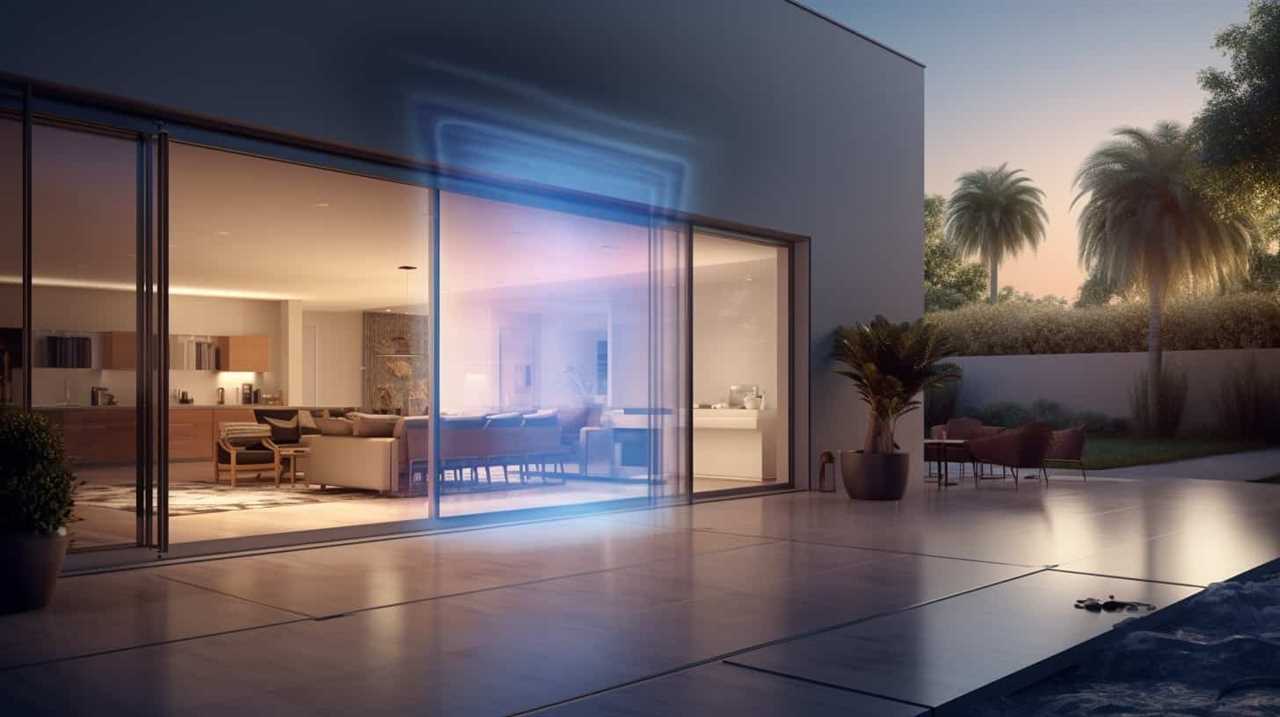
Harnessing Geothermal Energy to Enhance Heat Pump Efficiency
One way to enhance heat pump efficiency is by harnessing geothermal energy. Geothermal heating systems utilize the constant temperature of the earth to provide heating and cooling for residential and commercial buildings. These systems rely on a process called geothermal heat exchange, where heat is transferred between the ground and the heat pump.
The ground acts as a heat source during the winter months, while in the summer it acts as a heat sink. By tapping into this renewable energy source, heat pumps can achieve higher levels of efficiency compared to traditional heating and cooling methods.
Geothermal systems require a well-designed and properly installed ground loop system to effectively transfer heat. It’s essential to consider factors such as soil composition, sizing, and layout to optimize system performance.
With the integration of geothermal energy, heat pumps can operate more efficiently, resulting in significant energy savings and reduced environmental impact.
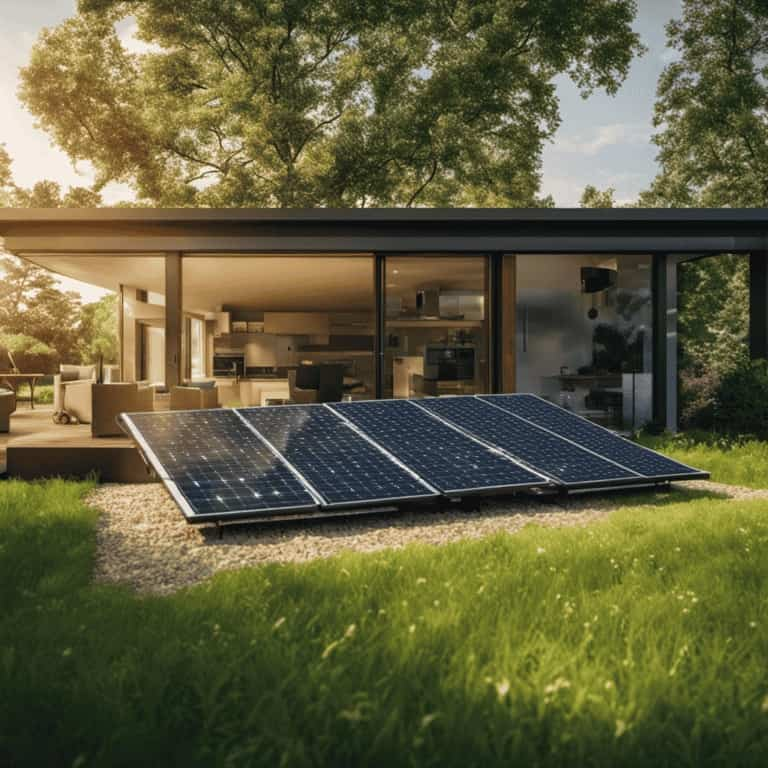
Maximizing Wind Power to Optimize Heat Pump Operation
To optimize heat pump operation, we can maximize wind power through the use of wind turbines. Incorporating wind power integration and wind energy optimization can significantly enhance the efficiency of heat pumps.
Here are three ways to maximize wind power for optimal heat pump operation:
Install on-site wind turbines to generate electricity directly for the heat pump system.
Utilize grid-connected wind power by sourcing electricity from wind farms.

Implement smart controls and energy management systems to synchronize heat pump operation with wind power availability.
By integrating wind power into heat pump systems, we can reduce the reliance on traditional energy sources and decrease carbon emissions. Wind power offers a sustainable and renewable energy solution that aligns with the goal of achieving maximum heat pump efficiency.
Now, let’s explore another renewable energy source, biomass, to further enhance the efficiency of heat pump systems.
Exploring Biomass Energy for Sustainable Heat Pump Efficiency
Our exploration of biomass energy reveals its potential for enhancing the efficiency of heat pump systems.
Biomass sustainability refers to the use of organic materials, such as wood pellets, agricultural waste, or dedicated energy crops, to generate heat. By utilizing biomass as a renewable fuel source, heat pumps can achieve carbon neutral heating, significantly reducing greenhouse gas emissions.
Biomass sustainability ensures that the materials used for fuel are replaced or regenerated at a rate equal to or faster than their consumption. This practice not only minimizes environmental impact but also ensures long-term availability of biomass resources.
Integrating biomass energy with heat pump systems offers a sustainable solution for efficient heating, providing an environmentally friendly alternative to fossil fuel-based heating methods.
Frequently Asked Questions
Can Heat Pumps Only Be Powered by Renewable Energy Sources?
Heat pumps can be powered by a variety of energy sources, including renewable ones. By utilizing renewable energy sources, such as solar or geothermal, heat pump efficiency can be boosted, reducing reliance on non-renewable fuels.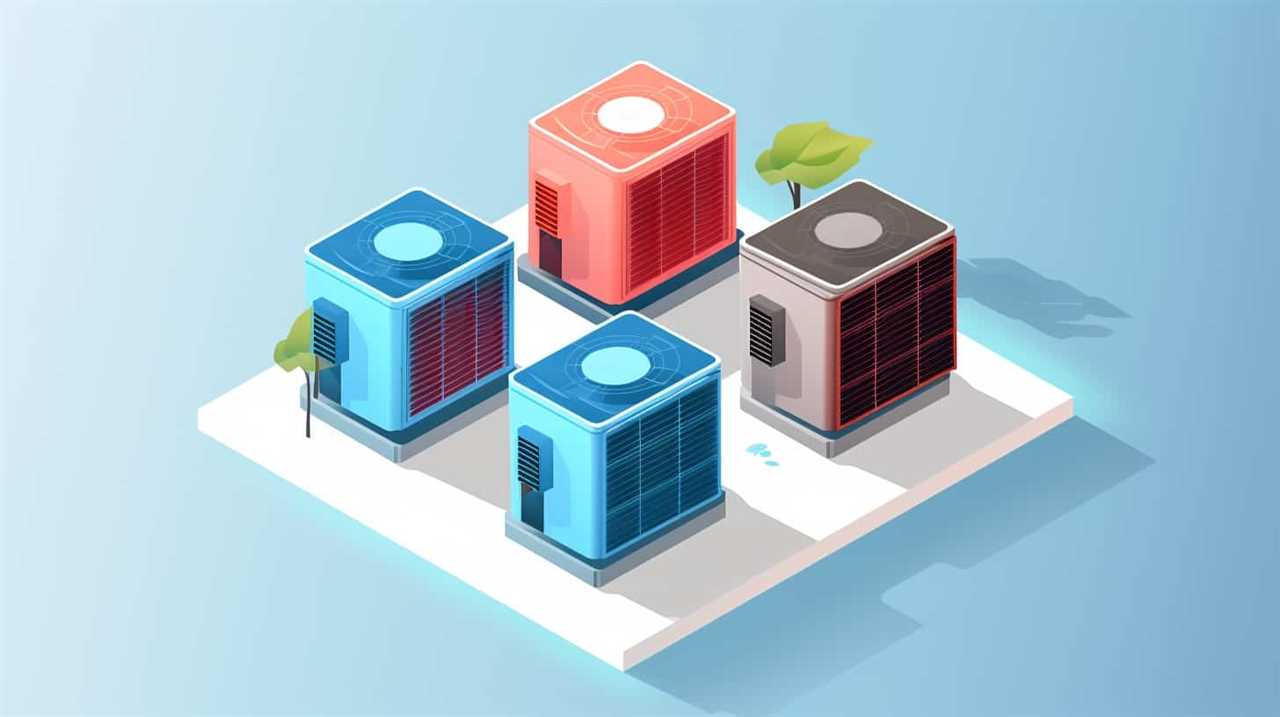
What Are the Main Advantages of Using Solar Power in Conjunction With a Heat Pump?
The advantages of using solar power in conjunction with a heat pump include increased energy efficiency, reduced reliance on fossil fuels, and lower carbon emissions. Solar power can significantly boost heat pump efficiency and contribute to a more sustainable and environmentally friendly heating system.
How Does Geothermal Energy Specifically Improve the Efficiency of Heat Pumps?
Geothermal energy is a game-changer when it comes to boosting heat pump efficiency. It harnesses the Earth’s natural heat, providing a constant and renewable source of energy. This translates to improved performance and lower energy costs.
Is Wind Power a Viable Option for Powering Heat Pumps in All Locations?
Wind power has limitations as an alternative energy source for heat pumps in certain locations. However, there are other renewables, such as solar and geothermal energy, that can be more viable options to boost heat pump efficiency.
What Are the Environmental Benefits of Using Biomass Energy in Heat Pump Systems?
Using biomass energy in heat pump systems provides several environmental benefits. It enhances efficiency by utilizing renewable energy sources. This reduces greenhouse gas emissions and dependence on fossil fuels, contributing to a cleaner and sustainable energy future.

Can Using Renewables Help Pay for an Energy-Efficient Heat Pump?
Using renewables can definitely help pay for energy-efficient heat pumps. By harnessing natural sources like sunlight and wind, renewable energy can power these heat pumps, thus reducing electricity costs. Additionally, governments often offer incentives and tax credits for using renewables, which can further offset the initial investment of installing energy-efficient heat pumps. This makes them a cost-effective and sustainable option for heating and cooling.
Conclusion
In conclusion, by harnessing the power of renewables such as solar, geothermal, wind, and biomass energy, we can unlock the full potential of heat pump efficiency.
Like a symphony of nature’s elements, these renewable sources harmonize with our heat pumps, maximizing their performance and sustainability.
With each renewable energy source playing its unique role, we can create a rhythm of efficiency that flows seamlessly, providing us with a practical and environmentally friendly solution for heating and cooling our spaces.
Geothermal Heat Pumps
Transforming Homes With High-Efficiency HVAC and Heat Pump Systems

Picture a world where our houses are more than just places to stay, but rather sanctuaries of comfort and efficiency. By using high-efficiency HVAC and heat pump systems, we can turn our homes into energy-saving machines, giving us the best heating and cooling possible.
In this article, we will explore the benefits of these innovative systems, understand the technology behind heat pumps, and discover how upgrading our HVAC systems can bring us improved comfort and liberation from high energy bills.
Key Takeaways
- High-efficiency HVAC and heat pump systems save money through energy efficiency.
- These systems improve indoor air quality by removing dust and allergens.
- They reduce carbon footprint by producing fewer greenhouse gas emissions.
- High-efficiency HVAC and heat pump systems provide optimal heating and cooling for homes, enhancing comfort and well-being in indoor environments.
The Benefits of High-Efficiency HVAC Systems
We love high-efficiency HVAC systems because they save us money and keep us comfortable. These systems bring a multitude of benefits to our homes, including improved indoor air quality and a reduced carbon footprint.
High-efficiency HVAC systems utilize advanced filtration technology to remove dust, allergens, and pollutants from the air, resulting in cleaner and healthier indoor environments. Additionally, these systems are designed to operate with maximum energy efficiency, consuming less energy and producing fewer greenhouse gas emissions.
Understanding Heat Pump Technology for Home Heating and Cooling
To fully grasp the benefits of heat pump technology for home heating and cooling, it’s important to understand how these systems work and the advantages they offer. Heat pumps are highly efficient devices that transfer heat from one place to another, providing both heating and cooling for homes. Unlike traditional heating and cooling systems, which generate heat or cool air, heat pumps simply move heat from one location to another.
Heat pump efficiency is measured by the Coefficient of Performance (COP), which indicates the amount of heat produced for every unit of electricity consumed. Generally, high-efficiency heat pumps have a COP of 3 or higher, meaning they produce three units of heat for every unit of electricity consumed. This makes them significantly more energy-efficient than conventional heating systems.
Heat pump installation involves placing an outdoor unit, known as the condenser, and an indoor unit, called the evaporator, connected by refrigerant lines. The outdoor unit extracts heat from the air or ground and transfers it to the indoor unit, which then distributes it throughout the house.
Understanding the inner workings and benefits of heat pump technology sets the stage for discussing the energy savings that can be achieved with high-efficiency HVAC and heat pump systems.
Energy Savings With High-Efficiency HVAC and Heat Pump Systems
With high-efficiency HVAC and heat pump systems, significant energy savings can be achieved through improved efficiency and reduced electricity consumption. This not only leads to cost savings, but also has a positive environmental impact.
Here are two key ways in which these systems contribute to energy savings:
Enhanced Efficiency: High-efficiency HVAC and heat pump systems utilize advanced technologies, such as variable speed motors and smart thermostats, to optimize energy usage. These systems can adjust their output based on the actual heating or cooling needs of the home, resulting in reduced energy waste.
Reduced Electricity Consumption: High-efficiency HVAC and heat pump systems require less electricity to operate compared to traditional systems. This is due to their ability to transfer heat rather than generate it, resulting in lower energy consumption and decreased reliance on fossil fuels.

Upgrading Your Home’s HVAC System for Improved Comfort and Efficiency
Upgrading your home’s HVAC system can provide improved comfort and efficiency by incorporating modern technologies and energy-saving features. By investing in a high-efficiency HVAC system, you can significantly increase energy efficiency and reduce your carbon footprint.
These systems are designed to consume less energy while providing the same level of comfort in your home. They utilize advanced technologies such as variable-speed motors, smart thermostats, and zoning systems to optimize energy usage. Additionally, high-efficiency HVAC systems are equipped with features like programmable timers and sensors that allow you to control and customize your home’s temperature according to your needs. This not only enhances your comfort but also helps to reduce unnecessary energy consumption.
Upgrading your HVAC system is a smart move that not only improves your home’s comfort but also contributes to a greener and more sustainable future.
Choosing the Right High-Efficiency HVAC and Heat Pump System for Your Home
We can select the right high-efficiency HVAC and heat pump system for our home by considering our specific needs and evaluating the available options. Here are some important factors to consider:

Selecting the appropriate size for your HVAC and heat pump system:
Assess the size of your home and the heating and cooling load requirements.
Consult with HVAC professionals to determine the right size based on square footage, insulation, and climate conditions.
Understanding the maintenance requirements of high efficiency systems:

Regularly clean and replace air filters to ensure optimal performance and indoor air quality.
Schedule annual maintenance inspections by licensed professionals to detect any issues and keep the system running efficiently.
Frequently Asked Questions
How Often Should High-Efficiency HVAC Systems Be Serviced or Maintained?
We should regularly service and maintain our high-efficiency HVAC systems to ensure optimal performance and longevity. By conducting frequent maintenance, we can enjoy the benefits of improved energy efficiency, lower utility bills, and a comfortable living environment.
Are There Any Government Incentives or Rebates Available for Installing High-Efficiency HVAC and Heat Pump Systems?
Yes, there are government incentives and rebates available for installing high-efficiency HVAC and heat pump systems. These incentives aim to promote energy savings and make these systems more accessible to homeowners.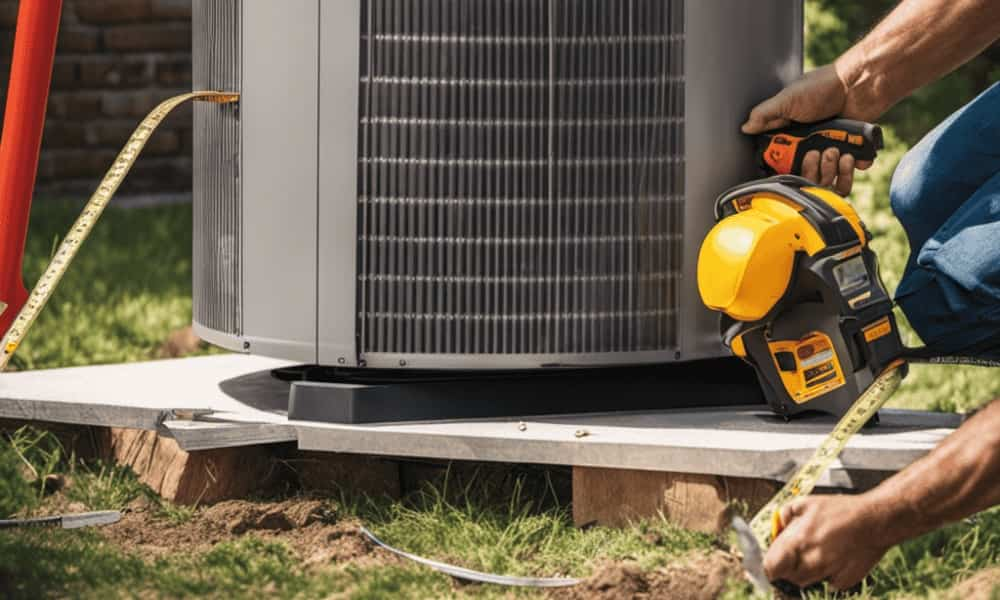
Can High-Efficiency HVAC Systems Be Integrated With Smart Home Technology?
Yes, high-efficiency HVAC systems can be seamlessly integrated with smart home technology. However, there may be some integration challenges and it’s important to assess the cost effectiveness of such a system before making the investment.
What Is the Average Lifespan of a High-Efficiency HVAC System?
The average lifespan of a high-efficiency HVAC system depends on regular maintenance frequency. With proper care, these systems can last for 15-20 years, providing efficient heating and cooling for our homes.
Are There Any Specific Requirements or Considerations for Installing High-Efficiency HVAC and Heat Pump Systems in Older Homes?
When installing high-efficiency HVAC and heat pump systems in older homes, there are specific challenges and cost considerations. It’s important to assess the existing infrastructure, insulation, and electrical capacity to ensure compatibility and optimal performance.
What Are the Benefits of Using High-Efficiency Heat Pumps for HVAC Systems?
High-efficiency heat pumps offer multiple benefits for HVAC systems, including green heating with heat pumps. By utilizing energy transfer principles, these systems can extract heat from the outside air and transfer it indoors, providing efficient heating in colder months. This reduces the reliance on traditional fossil fuel-based heating methods, helping to lower carbon emissions and provide cost savings. Additionally, high-efficiency heat pumps can also provide cooling during warmer seasons, offering year-round comfort and efficiency.
Conclusion
In conclusion, upgrading to high-efficiency HVAC and heat pump systems not only improves the comfort and efficiency of our homes but also leads to significant energy savings.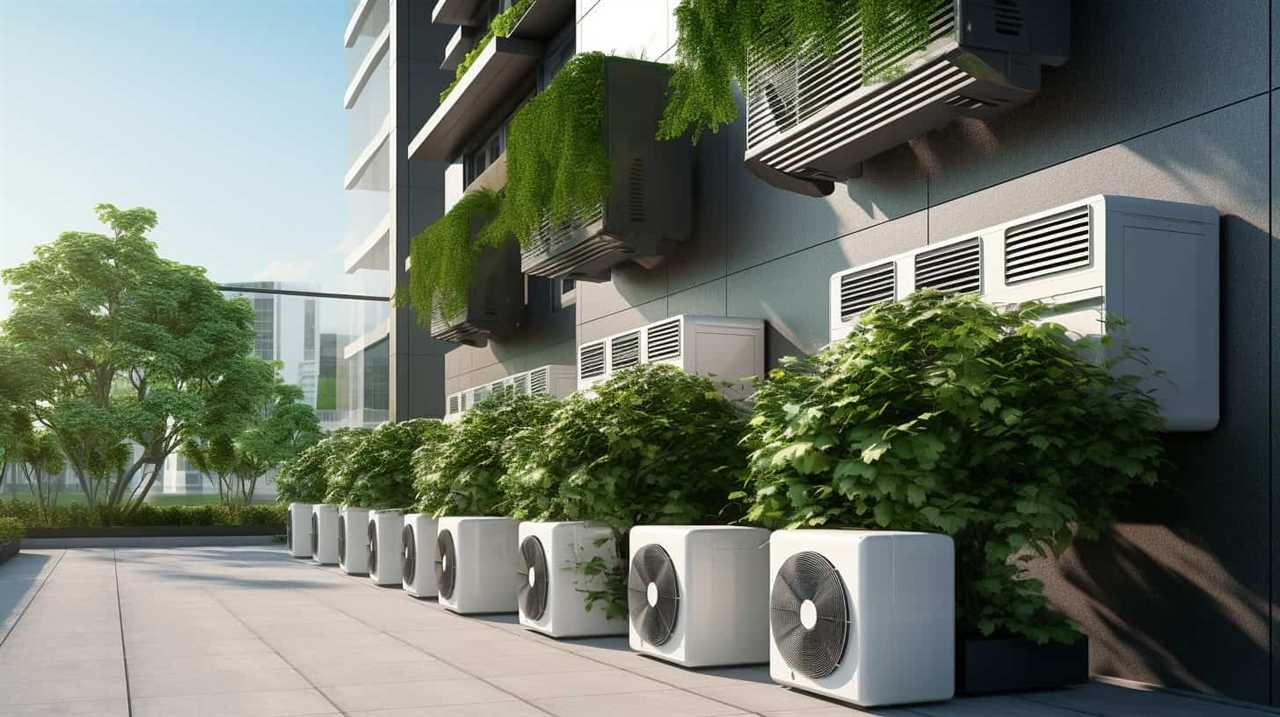
In fact, studies have shown that these systems can reduce energy consumption by up to 50%.
This means that not only will we enjoy a more comfortable living space, but we’ll also contribute to a more sustainable future by reducing our carbon footprint.
Geothermal Heat Pumps
Comparing Heat Pump Efficiency in Sustainable Buildings

In this article, we will explore sustainable buildings and analyze the effectiveness of heat pumps.
We will explore the factors that affect heat pump efficiency, the different types of heat pump systems available for green buildings, and the energy efficiency ratings for these systems in sustainable construction.
By analyzing the performance of heat pumps in green buildings, we aim to provide you with the best practices for optimizing heat pump efficiency in sustainable construction.
Get ready to master the art of comparing heat pump efficiency in sustainable buildings!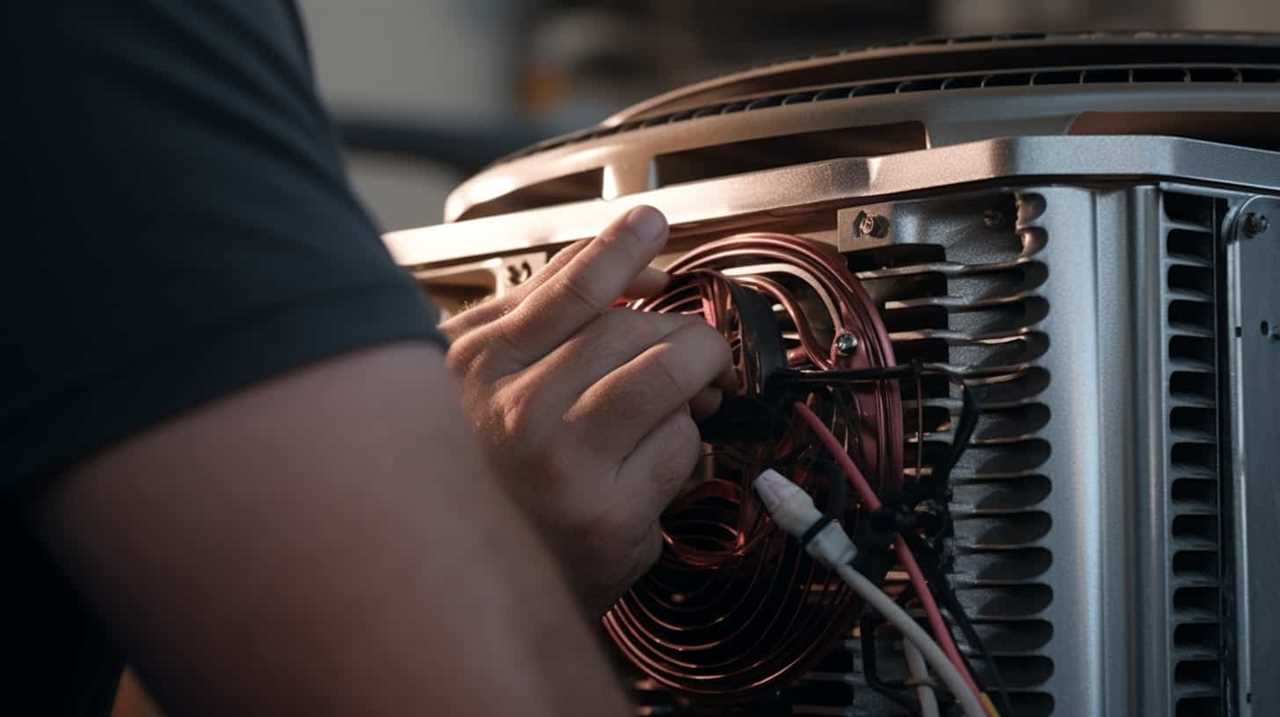
Key Takeaways
- Availability of incentives for heat pumps can play a significant role in promoting their usage in sustainable buildings.
- The impact of climate on heat pump efficiency highlights the need for careful consideration of local climate conditions when choosing a heat pump system.
- The importance of insulation in maximizing heat pump efficiency emphasizes the need for proper insulation in sustainable buildings.
- Regular maintenance is crucial for sustaining heat pump efficiency and ensuring optimal performance over time.
Factors Affecting Heat Pump Efficiency in Sustainable Buildings
In our research, we’ve identified several key factors that affect the efficiency of heat pumps in sustainable buildings.
One of these factors is the availability of incentives for heat pumps. Governments and organizations around the world are recognizing the importance of transitioning to more sustainable energy sources, and as a result, they’re offering various incentives to promote the adoption of heat pumps. These incentives can include tax credits, grants, and rebates, which can significantly reduce the upfront costs of installing a heat pump system.
Another factor that affects heat pump efficiency is the climate in which they’re installed. Heat pumps work by extracting heat from the air or ground, and the efficiency of this process is influenced by the temperature and humidity levels. In colder climates, where temperatures drop below freezing, heat pump efficiency may decrease, requiring additional energy to maintain desired indoor temperatures. Therefore, it’s crucial to consider the impact of climate on heat pump efficiency when designing and operating sustainable buildings.
Types of Heat Pump Systems for Green Buildings
When considering heat pump systems for green buildings, we must evaluate the different types available to determine the most suitable option. Two common types of heat pump systems for green buildings are geothermal heat pumps and air source heat pumps.
Geothermal heat pumps use the stable temperature of the ground or water as a heat source or sink. They achieve high efficiency by utilizing the relatively constant temperatures available underground. Geothermal heat pumps can provide both heating and cooling, making them versatile for various climates.
On the other hand, air source heat pumps extract heat from the outdoor air and transfer it indoors. They’re easier to install and require less space compared to geothermal heat pumps. However, their efficiency may vary depending on the outdoor temperature.
Both geothermal and air source heat pumps offer energy-efficient solutions for green buildings. The choice between the two depends on factors such as available space, local climate, and budget considerations.
Energy Efficiency Ratings for Heat Pumps in Sustainable Construction
For our evaluation of heat pump efficiency in sustainable construction, we’ll analyze the energy efficiency ratings of different heat pump systems. Energy efficiency ratings provide essential information about the performance of heat pumps and their ability to save energy. These ratings are determined by industry standards and are based on the ratio of heat output to electricity input.

The higher the rating, the more efficient the heat pump is in converting energy into heat. Energy-saving technologies incorporated into heat pumps, such as variable-speed compressors and smart controls, can further enhance their efficiency.
Comparing the Performance of Heat Pumps in Green Buildings
We will assess and compare the performance of heat pumps in green buildings to determine their effectiveness in providing efficient heating and cooling solutions. A comparison of heat pump performance in green buildings can help us understand the benefits of using these systems in sustainable construction. To facilitate this comparison, we have created a table that highlights the key performance metrics of different heat pump models in green buildings. This data-driven approach allows us to analyze the efficiency, energy consumption, and environmental impact of each heat pump. By examining these factors, we can identify the most effective heat pump solutions for sustainable construction projects. Transitioning into the next section, we will now explore best practices for optimizing heat pump efficiency in sustainable construction.
| Heat Pump Model | Efficiency (COP) | Energy Consumption (kW) | Environmental Impact (CO2 emissions) |
|---|---|---|---|
| Model A | 4.5 | 8.2 | 2.5 tons |
| Model B | 3.8 | 9.6 | 3.1 tons |
| Model C | 5.2 | 7.5 | 2.2 tons |
| Model D | 4.2 | 8.8 | 2.8 tons |
| Model E | 4.8 | 7.9 | 2.4 tons |
Best Practices for Optimizing Heat Pump Efficiency in Sustainable Construction
To maximize heat pump efficiency in sustainable construction, we recommend implementing proper insulation and regular maintenance. These best practices can significantly improve the performance and energy efficiency of heat pumps, leading to reduced energy consumption and lower greenhouse gas emissions.
Here are three key strategies for optimizing heat pump efficiency: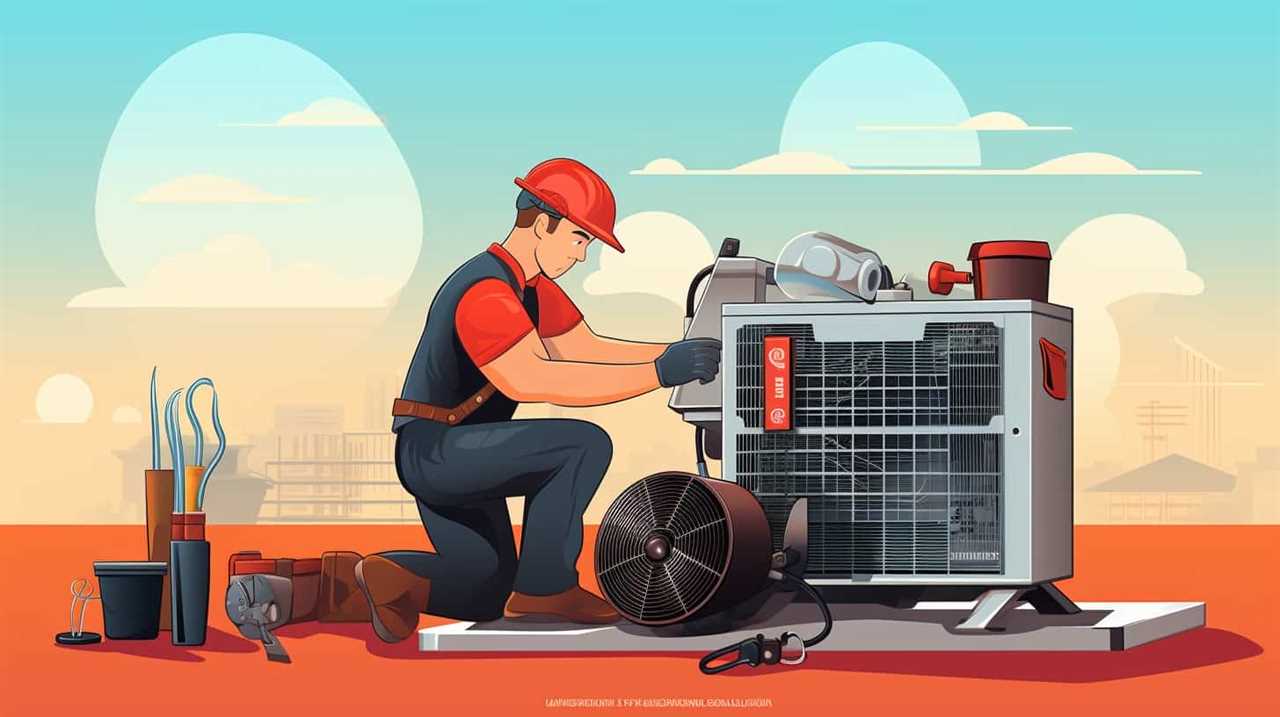
-
Optimizing insulation: Ensuring that the building envelope is well-insulated helps minimize heat loss and maintain a consistent indoor temperature. This reduces the workload on the heat pump, allowing it to operate more efficiently.
-
Renewable energy integration: Pairing heat pumps with renewable energy sources, such as solar panels or geothermal systems, can further enhance their efficiency. By utilizing clean and sustainable energy, heat pumps can operate at higher COP (Coefficient of Performance) values, resulting in greater energy savings.
-
Regular maintenance: Conducting routine maintenance, including filter cleaning, refrigerant checks, and system inspections, is crucial for maintaining optimal heat pump performance. Regular maintenance helps identify and address any issues promptly, preventing energy inefficiencies and potential breakdowns.
Frequently Asked Questions
How Are Heat Pumps Different From Traditional Heating and Cooling Systems?
Heat pumps differ from traditional heating and cooling systems by utilizing the heat transfer process to efficiently heat or cool a space. This results in lower energy consumption and higher efficiency compared to conventional systems.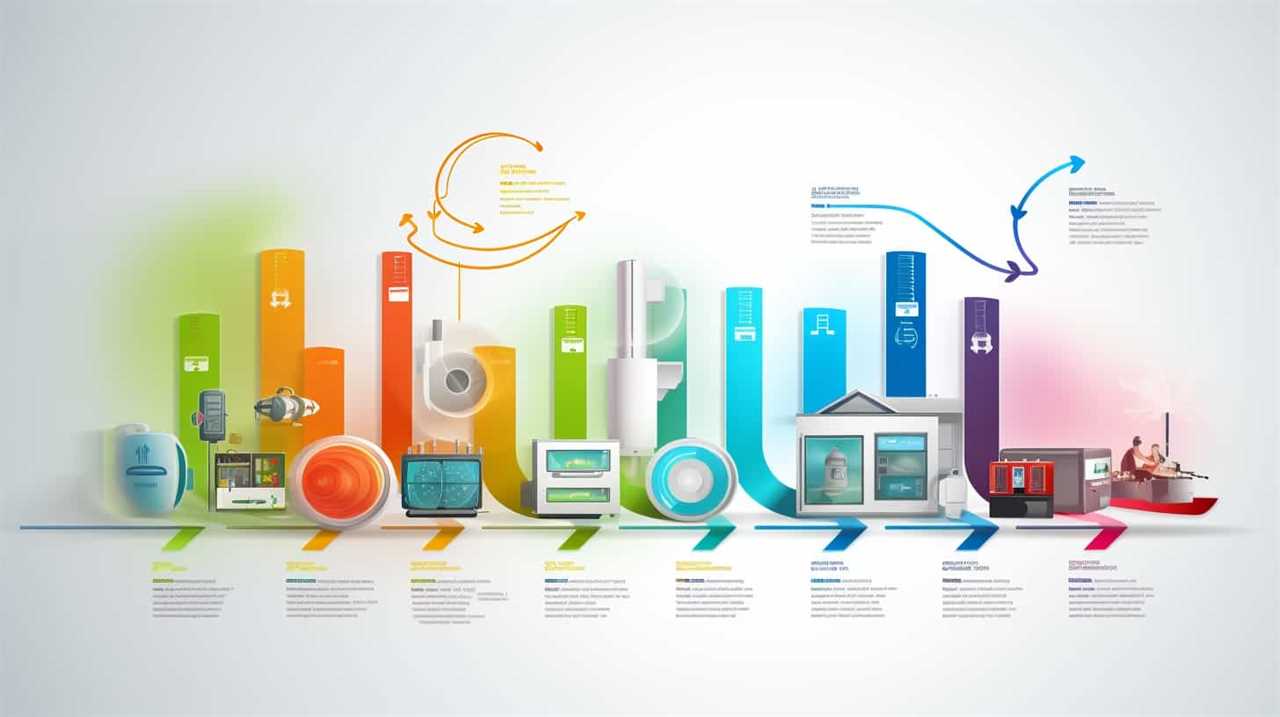
What Are the Environmental Benefits of Using Heat Pumps in Sustainable Buildings?
Using heat pumps in sustainable buildings offers numerous advantages. They have a positive impact on the environment by reducing greenhouse gas emissions, improving energy efficiency, and promoting renewable energy sources.
Are There Any Financial Incentives Available for Installing Heat Pumps in Green Buildings?
Financial incentives are available for installing heat pumps in green buildings, which can help offset the installation costs. These incentives can include tax credits, rebates, and grants, making heat pump adoption a more financially viable option for sustainable building projects.
Can Heat Pumps Be Used in All Types of Sustainable Buildings, Regardless of Size or Design?
Heat pump compatibility varies in different sustainable buildings, regardless of size or design. However, implementing heat pumps can lead to significant energy savings, making them a viable option for many green buildings.
What Maintenance and Care Is Required for Heat Pumps to Ensure Optimal Efficiency in Sustainable Construction?
To ensure optimal efficiency in sustainable construction, heat pump maintenance is crucial. Regularly cleaning or replacing air filters, checking refrigerant levels, and inspecting coils are essential tasks. Neglecting maintenance can lead to decreased energy efficiency and higher operating costs.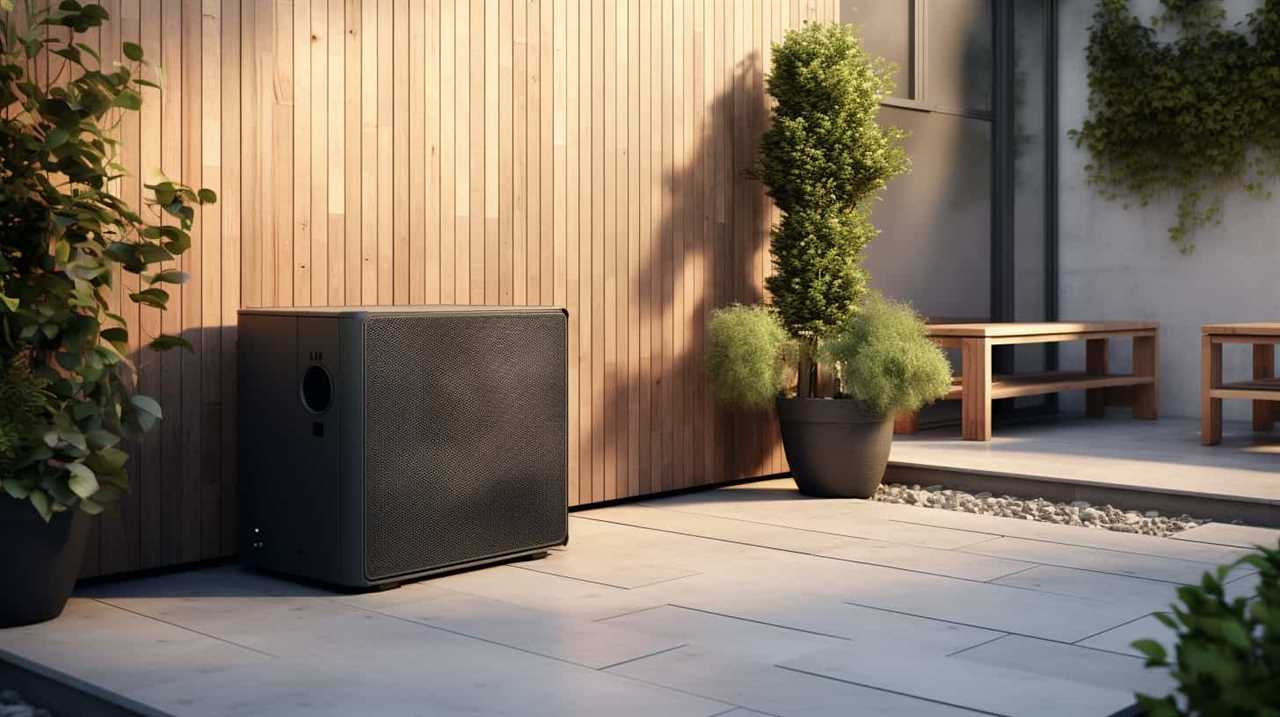
Conclusion
In conclusion, when it comes to heat pump efficiency in sustainable buildings, careful consideration of factors such as insulation, system type, and energy ratings is crucial. By optimizing these aspects, we can achieve significant energy savings and reduce carbon emissions.
For example, a study conducted in a green building with an efficient heat pump system showed a 30% reduction in energy consumption compared to traditional heating methods.
Just like a well-conducted symphony, the harmonious combination of these factors can create a sustainable rhythm for our planet’s future.
-

 Residential and Commercial Applications2 weeks ago
Residential and Commercial Applications2 weeks agoBest Amana Heat Pump Reviews
-

 Thermal Energy Transfer2 weeks ago
Thermal Energy Transfer2 weeks agoBreakthroughs in Modern Heat Pump Systems: Thermal Energy Edition
-

 Residential and Commercial Applications2 weeks ago
Residential and Commercial Applications2 weeks agoBest Heat Pump
-

 Geothermal Heat Pumps3 months ago
Geothermal Heat Pumps3 months agoUpgrade Your Comfort with Our Efficient HVAC Systems
-

 Air Conditioning3 months ago
Air Conditioning3 months agoExploring Energy-Efficient Air Conditioning Heat Pumps
-

 Geothermal Heat Pumps3 months ago
Geothermal Heat Pumps3 months agoInnovative Geothermal Heat Pump Manufacturers Revolutionize Energy Efficiency
-

 Thermal Energy Transfer1 month ago
Thermal Energy Transfer1 month agoBoost Your Heat Pump Efficiency: Interactive Guide
-

 Residential and Commercial Applications2 weeks ago
Residential and Commercial Applications2 weeks agoBest Portable Heat Pump Heat & AC










